Flashlight #13: How an Accountability Partner Saved my Writing Life
Less than two weeks until The Red Grove is published! Squee! But today, the bigger picture: how to build a sustained, long-term relationship to writing beyond a single book.
Less than two weeks until The Red Grove is published! It’s totally fine that I woke up at 5am, heart pounding, right?! These last few weeks pre-pub are this bizarre mix of hyper excitement and terror, where it feels like suddenly everything is changing, except that… everything is the same. Wheee!
There have been some really great reviews coming in: here and here and here are a few. I’m so grateful! And I’ll be traveling this spring and summer on book tour and would really love to see you.
But today I’m not going to talk about this new book specifically, because what I want to be reminding myself of, when all the focus gets so narrowed in on this one project, is that for me, the big goal is figuring out how to have a sustained life as an artist. How to be a writer for the long-term.
For that reason, I’m posting an essay here about how I got back on track with an accountability partner after I almost quit writing. This recently appeared in the Rumpus’s members newsletter - they’re wonderful and worth supporting! But I’m also including it here.
It was 2018 and for the first time in my life, I had plenty of time to write. I’d sold my book, left the PhD program I was in to follow my partner across the country for his new academic job, and though I was teaching some online writing courses, suddenly had the time and money to mostly just write. But I wasn’t writing. I was stuck.
Was it writer’s block? Depression? Nerves about my forthcoming book release? Grief over my mom’s death?
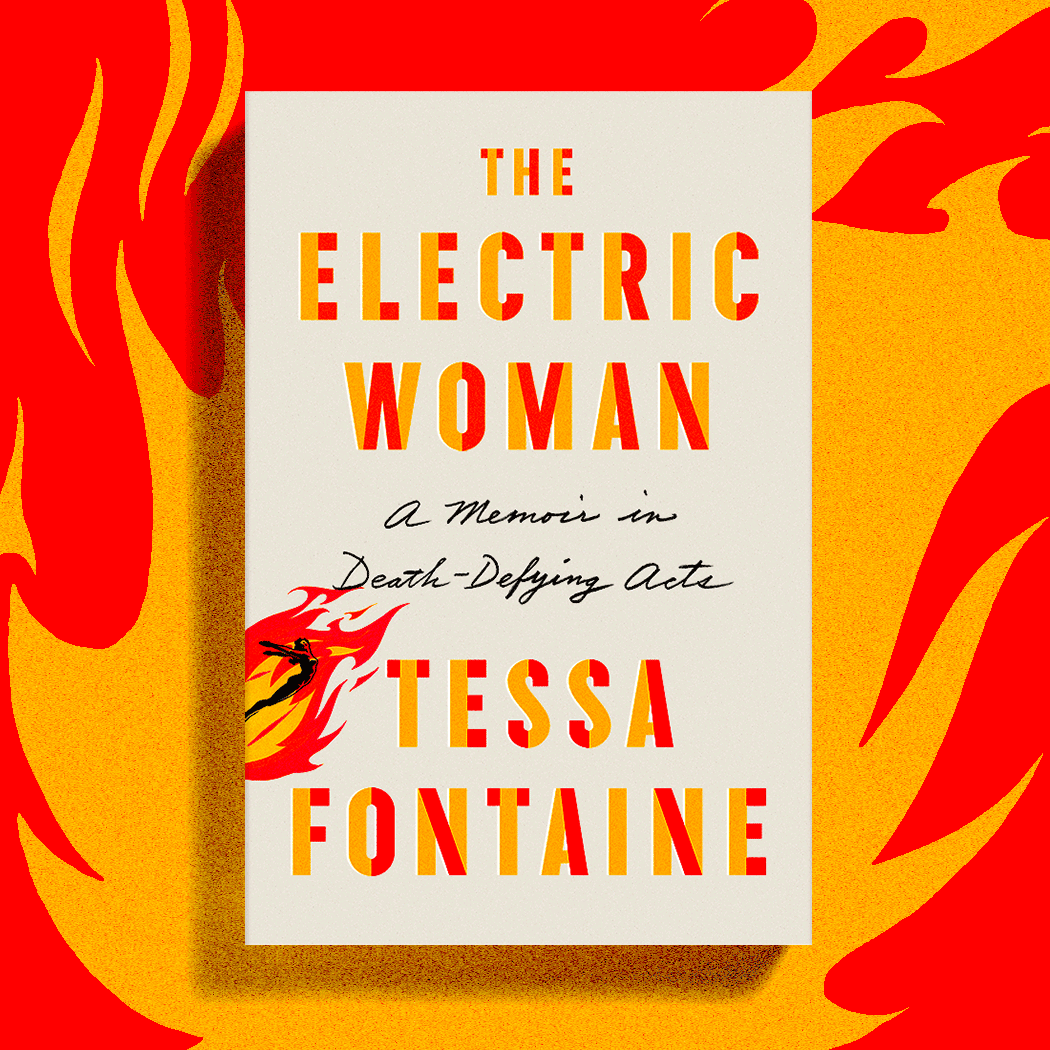
I had plenty of writer friends from graduate school, but I didn’t know anyone else who had an agent and was publishing with one of the big five presses. Both the MFA and PhD programs I’d been in were filled with writers and humans I adored who were mostly writing work more experimental than me, and so publishing with small presses, or weren’t quite at the publishing stage yet. But I’d taken the plunge, had an agent and a contract with a major press, and no idea how to navigate it. There is no right road in publishing, but the roads are different from one another and I was desperate for someone who could tell me what to expect about the road I was on now. Plus, there was the issue of not writing. That was obviously my biggest problem.
I emailed Annie Hartnett, a fellow student in the MFA program at the University of Alabama who I hadn’t known well. From afar, she was beautiful and hilarious and smart and mega-talented. The year before, she’d published a much-beloved book, Rabbit Cake, with Tin House. I didn’t know her well enough at the time to tell her I ugly-cried over her book, but now, needing advice from somebody, anybody, I emailed her and said, “Hey, remember me? How do you write a second book?”
She replied with sweetness and humor and then said that she had no damned idea how to write a second book. She, too, was stuck. We joked about the Sheryl Crow (originally Cat Stevens) song: The First Cut is the Deepest. The first book you write, with all the years of your life boiling up inside you, smearing it all onto the page until it feels like you’ve squeezed everything out, felt easy now that it was over. For all my life, I thought that if I ever finished and sold a book, my life would be complete. It was my Everest. And it was thrilling! I bought champagne! I wept with joy! And people say: “Congratulations, you’re a writer!” But then it’s the next day, and then the next, and in order to remain a writer, you have to come up with something else, as if you haven’t already wrung yourself dry.
“I do have this one idea,” Annie said. She had encountered an essay by Aimee Bender about a work contract to hold yourself accountable to writing.”You want to try this?” she asked. And like the frog getting asked to prom, I said: “yeah, sure,” being super casual in my email, jumping for joy in my kitchen.
We each drafted a contract, committing to word counts and daily email check-ins with one another. We included vacation days. We put in affirmations and stipulations, like Wi-Fi off, and an imperative to go forward no matter what. We became accountability partners. We both had MFAs and we both had published books—but this contract thing was different.
It was so strange. I opened my computer in the morning, turned off the internet, and wrote. I knew the word count I had to reach. I knew that once I hit that word count, I could be done for the day and not mope around with low-level anxiety at all times, knowing I should really do more writing. The work got done. The agony ended. I didn’t suddenly know what would happen next in the new book I was writing, but I knew had to write into the not-knowing to hit my daily goal, and by stumbling through that darkness, I started to figure it out. Bumbling through it sure felt better than just pacing the edge of the darkness, desperate to enter, but afraid to.
Back then, I didn’t know Annie well enough to tell her all the excuses I had for not writing. She wasn’t a friend yet, it would be an overshare. Instead, I just had to write what I said I would that day, send the email saying I was done, and move on to whatever else I needed to do. It was the most free I’d ever felt in my writing life.
Because of the contract, we both wrote second books. Annie’s novel, Unlikely Animals, came out with Random House in April 2022, and my second book, The Red Grove, is forthcoming with FSG in May.
After a few years of the writing contract and accountability partnership, we decided to share this magic potion* with other writers. (*Just to be clear, it’s not really a magic potion, but it sure feels like one sometimes).
The Accountability Workshops were born. We have supported many writers in maintaining creative accountability—about 140 so far. We keep our writers on track with work contracts, email check-ins, group Zoom meetings every other week, and one-on-one coaching phone calls. We also have other goodies, like a monthly speaker series, book club, and monthly brainstorming sessions on topics like finding beta readers, Substack, and freelance gigs. Each accountability cohort is made of 10-12 writers.
What Annie and I needed when we were stuck was support, community, and accountability. We did not need a workshop–we were deep in the trenches of a new book, and we needed to stay in our own heads. Endless feedback can be confusing and counterproductive in the drafting stage, especially on book-length projects. In the accountability workshops, nobody is required to read anyone else’s work (although people in the group do swap drafts on a volunteer basis).
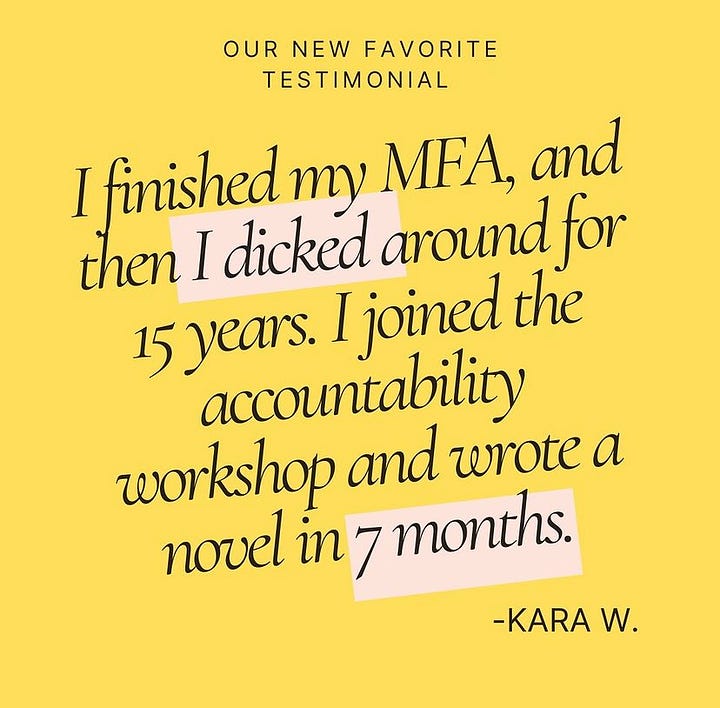
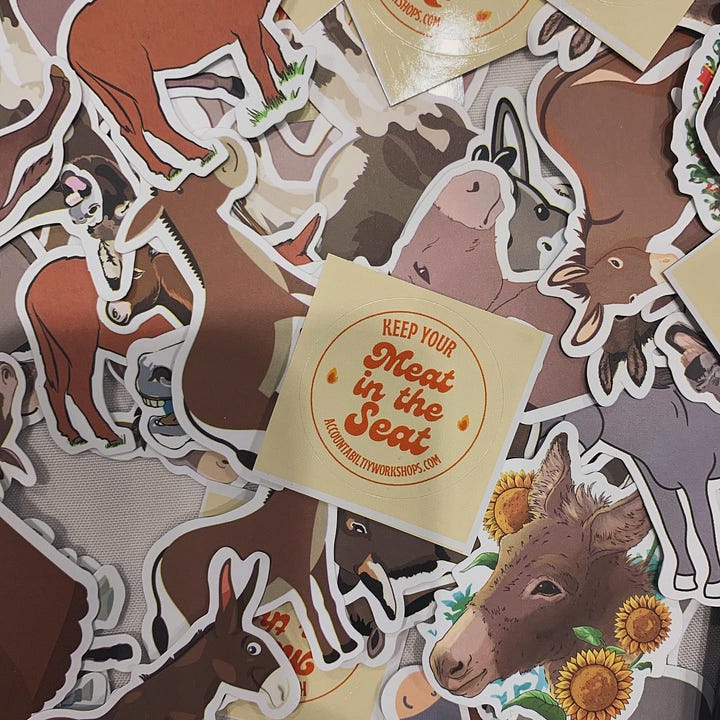
We work hard to keep butts in chairs and help writers solve the problems that inevitably arise along the way. What we did for each other helped develop sustainable writing practices. It’s been the biggest gift.
Annie is now finishing up her third book, and I’m 43,000 words into mine. Since our first books, we’ve had babies, life disasters, joys, and lots of hours on Zoom together. Though I no longer fear her cool-girl judgment (she is def my work wife), I have instead found an actual real-life long-term accountability partner who, whenever I feel down about my writing, tells me I will win the National Book Award. It makes me laugh. Those are the cheerleaders we need in our lives.

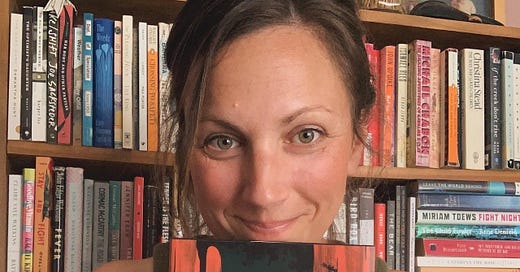



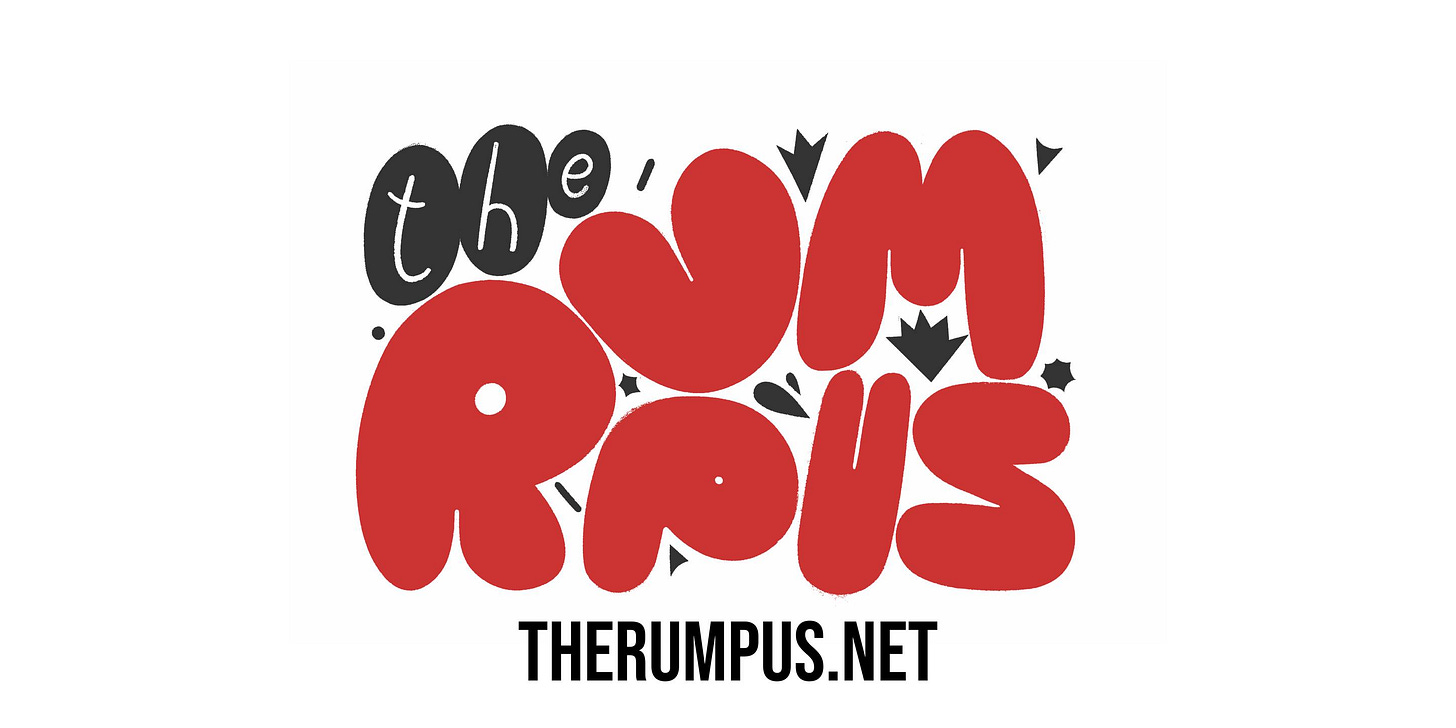
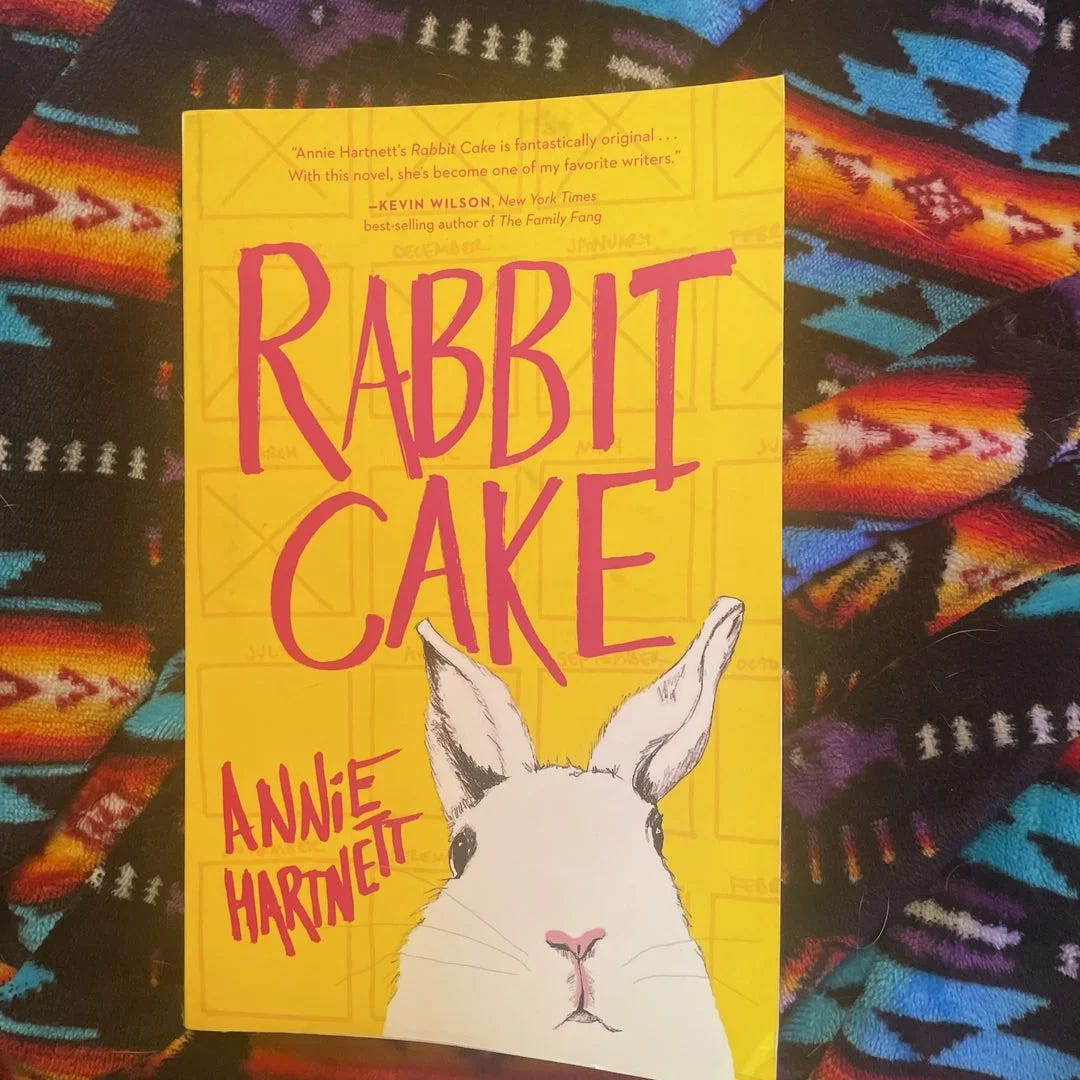
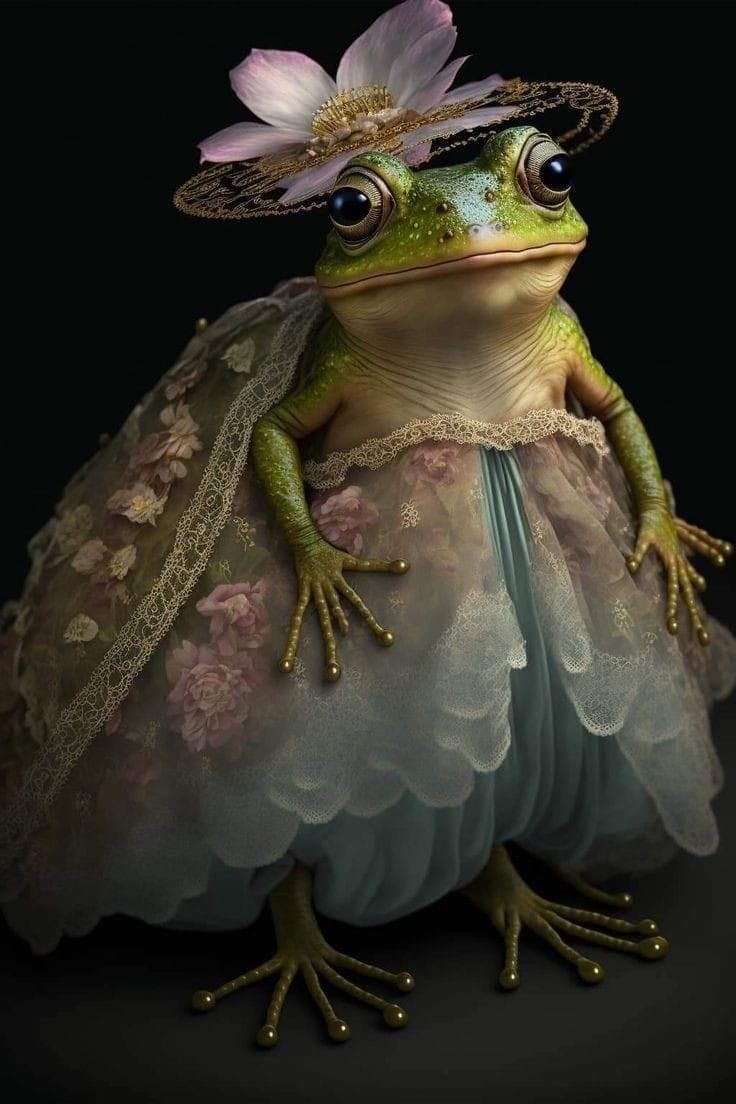
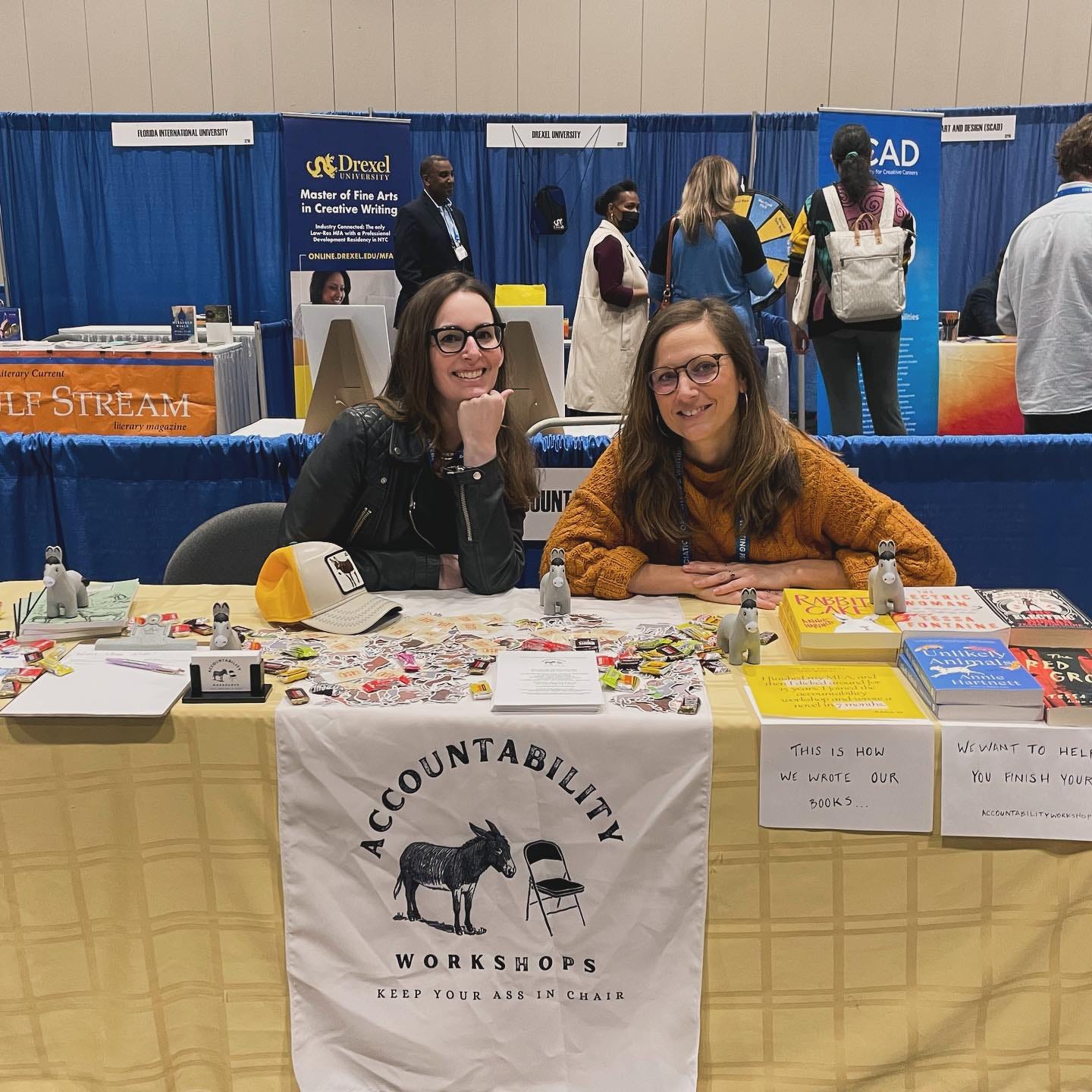
Love this, Tessa. Your vulnerability in sharing your self-doubt makes room for the rest of us who want to keep art in our lives but struggle with how/why/does it even matter. Oh, and don't forget about your podcast! You two put out inspiration in so many formats ;)